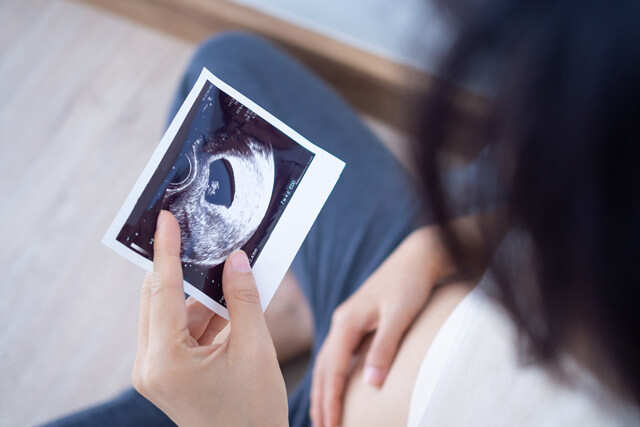[ad_1]

Image: Shutterstock
Miscarriage is the most common type of pregnancy loss, and it can be both physically and emotionally painful and draining. As per reports, almost 80% of miscarriages happen in the first trimester, i.e., 13 weeks of gestation. Dr Nupur Gupta, Director, Obstetrics and Gynecology, Fortis Memorial Research Institute, Gurugram, says, “Sometimes, it is difficult to find out the exact cause of miscarriage. But yes, there are measures that we can adopt to prevent miscarriages. ”
Dr Nupur helps us understand the common causes of miscarriage in the first and second trimester.
Causes Of Miscarriage In The First Trimester

Image: Shutterstock
“More than 50% of first trimester miscarriages are due to chromosome or genetic abnormality. If there is some genetic damage in the fetus, then ultimately, it will not survive, ”states Dr Nupur. She adds that the second reason for miscarriage in the first trimester is the presence of hemorrhage or blood clot. “Sub chorionic haemorrhage can also lead to termination of pregnancy. In some cases where there have been recurrent first trimester abortions, the cause for miscarriage may be the formation of antibodies, called anti-phospholipid antibodies syndrome, ”explains Dr Nupur. Placental problems or uterine defects can also lead to miscarriage.
Causes Of Miscarriage In The Second Trimester

Image: Shutterstock
Second trimester refers to 13 to 20 weeks of gestation, and a miscarriage during this time can be the result of a simple infection in uterus or cervix. Additionally, medical problems such as diabetes or high blood pressure, thyroid conditions, autoimmune disorders, fibroids, or genetic defect in the uterus also contribute to higher risk of miscarriage. “Lifestyle factors like increased consumption of alcohol, smoking, caffeine or drugs, and environmental factors play an important role in miscarriage too,” warns Dr Nupur.
Preventing Miscarriage

Image: Shutterstock
As per Dr Nupur, the first and foremost step is to take folic acid which might reduce the chances of birth defects in pregnancy and also reduce the risk of miscarriage. “400 micrograms of folic acid supplementation needs to be taken three months prior to planning pregnancy. Continue this during pregnancy as well. Other than this, follow a healthy lifestyle which includes eating well, staying hydrated, exercising regularly, and getting enough rest. Most importantly, avoid smoking, alcohol, and drug abuse. Be sure to put an end to passive smoking too. Also limit your caffeine intake to no more than two cups a day, which is less than about 200 milligrams, ”advises Dr Nupur.

Image: Shutterstock
Don’t forget your immunisations! “Be up to date on your flu vaccine or shot and those for any other chronic or medical condition that you might have, including high blood pressure, diabetes, autoimmune disease. Doing so will reduce your risk of miscarriage, ”says Dr Nupur. Also check for any sexually transmitted diseases between you and your partner, and always use barrier contraception.
Over and above this, beware of threatened abortion, a condition where symptoms indicate a possible miscarriage. Dr Nupur says, “In such a situation, it is important to incorporate measures like bedrest, avoid heavy weight lifting, avoid sexual intercourse, treat the underlying condition, and give some supportive treatment for pregnancy. If you’re RH negative, anti-D injection will be beneficial if you have bleeding issues. ”
Read more: All You Need To Know About Opting For Epidurals During Labor
[ad_2]
Source link

